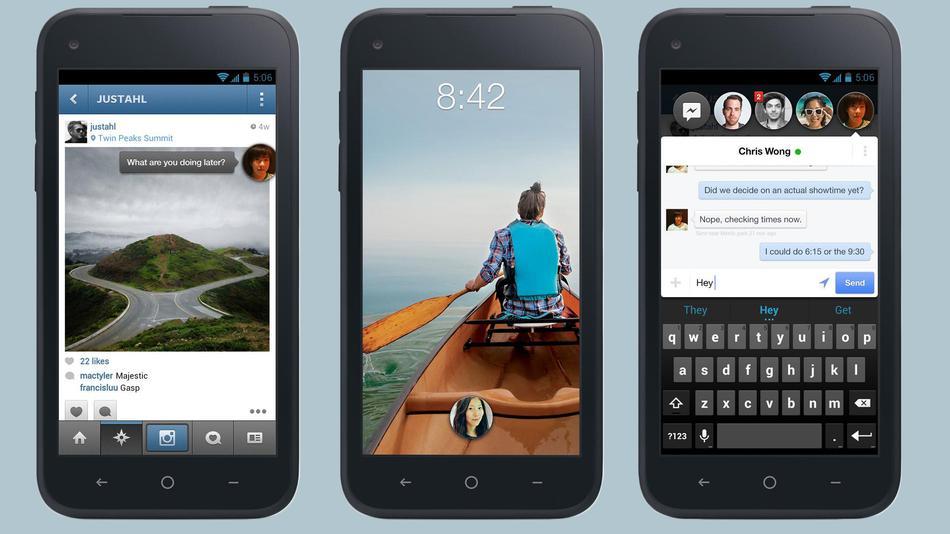
09 Apr Facebook Wants To Take Over Your Android Home Screen
While the rumour of Facebook building their own phone fell flat on its face, Facebook Home is pretty close.
Facebook Home was revealed in a press event by CEO, Mark Zuckerburg, yesterday in Menlo Park, California.
So What’s Facebook Home All About?
 Essentially, it’s an Android “skin” that puts Facebook front and centre on your Android device.
Essentially, it’s an Android “skin” that puts Facebook front and centre on your Android device.
Instead of being greeted with your run of the mill Android home screen, Facebook Home transforms it into a visual, real-time representation of the Social network’s Newsfeed. You can expect a constant stream of full-screen photos and stories, with your profile picture found in the lower middle of the screen. You can access options such as messages, apps and the last app launched by tapping on the profile picture.
Any incoming messages pop up on the top right of the screen in the form of bubbles that each represent a particular conversation thread, dubbed ‘Chat Heads’. Up to four ‘heads’ will be visible on the screen, with the oldest threads bumped out when a new one appears. Facebook have taken multitasking into account, with new messages able to be read without exiting the app you are currently using.
Facebook have shown how important mobile has become to them, by ensuring Home is easy to use on a mobile device. This is why gestures feature prominently with the user interface, with notifications able to be cleared out with a single long-press, while ‘Chat Heads’ can be dragged around anywhere on the screen. Want to like a photo? All you have to do is double tap, no more hitting and missing with a tiny ‘like’ button.
What Does This Mean For Privacy?
Of course, this has prompted concerns surrounding user privacy (such as this article written by Om Malik of GigaOm), particularly regarding how and what type of data Facebook would collect via Home on Android. Home will be deeply integrated into the Android OS, which opens up questions regarding how this integration may make use of phone features such as GPS to collect information about the user.
However, Facebook have responded to these concerns in a blog post, stating that:
Facebook explained that Home will only collect information around when you interact with the service (i.e. liking or commenting on a post or sending a message), in addition to a list of apps that you have in the Home app launcher. According to their post, they will only store this information for 90 days to use it to provide the service and make improvements.
Facebook are looking to work with handset makers to pre-install Facebook Home, with the HTC First leading the way. The HTC First comes with Facebook Home pre-installed, which differs from the downloaded version in that system notifications from apps on your phone (such as text messages and missed calls) will be displayed in Home. When it comes to privacy, Facebook have stated that it will collect information about these notifications (like which app is generating them), but it will not collect information about the content linked to the notifications. This information will also be removed in 90 days.
How To Get Facebook Home
If you’re interested in Facebook Home, unfortunately it will only be available to the US when it rolls out initially on April 12 and only on HTC and Samsung devices running Android 4.0 Ice Cream Sandwich or 4.2 Jelly Bean. However, an international roll out shouldn’t be too far behind, with Facebook promising updates to Home every month that will bring it closer to offering Home on more devices.
When Home is rolled out internationally (and supports more devices), users will have the option of just trying it out or making the switch completely.

